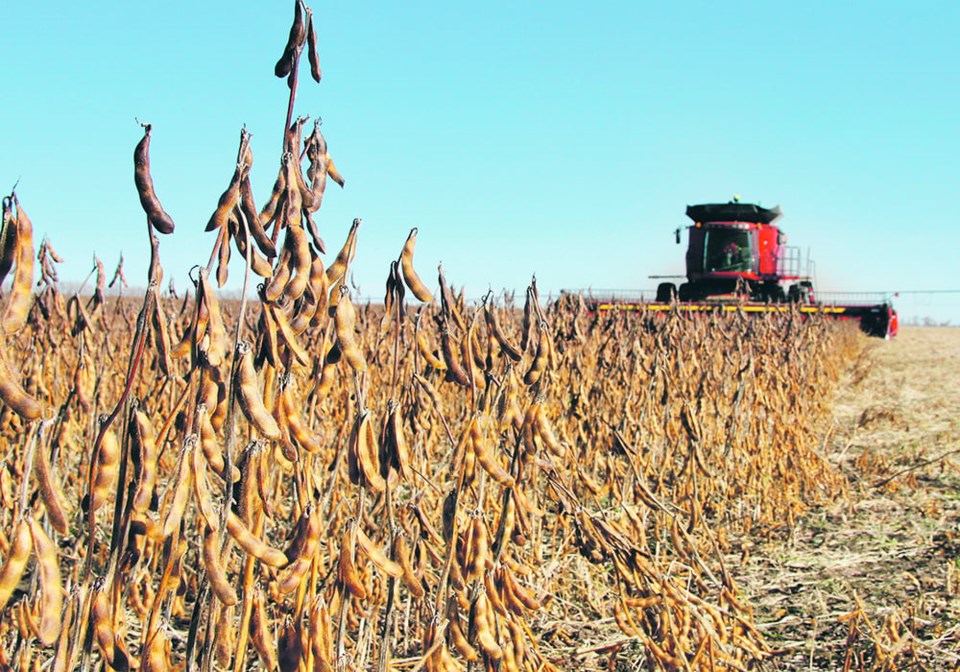WESTERN PRODUCER — There is mounting trepidation about the threat the thriving oilseed sector poses to North America’s pulse industry.
“Most pulse industry people should be concerned,” says Jeff Van Pevenage, president of Columbia Grain International, a grain company headquartered in Portland, Oregon, that handles pulses and other crops.
He thinks 30 percent of the dry bean acres in North Dakota and an equal portion of the green pea acres in Washington and Idaho could eventually succumb to pressure from rapidly expanding soybean and canola acres in those states.
Oilseed crops will be in high demand when all the new crush facilities come online to fuel the renewable diesel plants springing up across the United States.
The new US$350 million Archer Daniels Midland Co.-Marathon Petroleum Corp. plant in Spiritwood, N.D., is scheduled to be operational by harvest 2023.
As a result, Van Pevenage expects to see an increase in the state’s soybean acres and a reduction in its pulse acres this spring.
This looming threat to North America’s pulse industry was a topic of conversation at the recent Americas Pulses Congress organized by the Global Pulse Confederation, according to a recent Stat Publishing article.
“Long-term doubts were raised about how much land will be sown to lentils and other pulses in North Dakota, Minnesota and Saskatchewan,” said the Stat article.
In the United States, 13 new crush plants and 10 expansions have been announced, according to the American Soybean Association.
If all those projects get built, it would add 750 million bushels of crush capacity, a 34 percent increase over today’s volumes.
Three of the new plants are being built in North Dakota, adding 130 million bu. of crush capacity in that state, a sevenfold increase from current levels.
Those plants will need to consume more locally grown soybeans.
A similar scenario is unfolding north of the border in Canada, where new canola crush plants are being built to supply oil to the biodiesel and renewable diesel sectors.
Capacity is expected to grow by 5.7 million tonnes by 2030, a 50 percent increase over today’s levels.
The Canola Council of Canada is hoping to expand acres in the brown soil zone to help supply three new crush plants being built in Regina.
There is also a hope that acres will expand in the U.S., where they have already been steadily climbing, reaching 2.17 million acres in 2022.
Van Pevenage said pulses are losing ground to canola in the Pacific Northwest.
“We’re seeing a big uptick in canola acres,” he said.
Farmers are including the crop in their rotations to help control Italian ryegrass, and they are taking pulses out.
He sees that trend continuing in Washington and Oregon.
In Montana, pulses are seeing increased competition from oilseed crops such as canola, flax, and camelina, albeit at a slower rate than in the Pacific Northwest.
The new crush plants in North Dakota will require another three million acres of locally grown soybeans.
“That’s going to be really big competition for dry bean acres,” said Van Pevenage.
The same goes for Minnesota, which is getting one large new plant of its own and is within sourcing distance of two of the planned North Dakota facilities.
He worries that declining pulse acres will take a big toll on small pulse processors, such as the cleaning and bagging plants in the Pacific Northwest.
“You take 30 percent of the acres away, how’s that going to affect the processing capacity at those facilities and the margins out there?” said Van Pevenage.
He thinks the North American pulse sector is about to go through some turbulent times.
“The industry as a whole has to understand there’s likely going to be a round of consolidation coming up.”
Contact [email protected]

